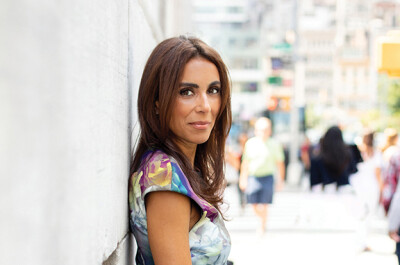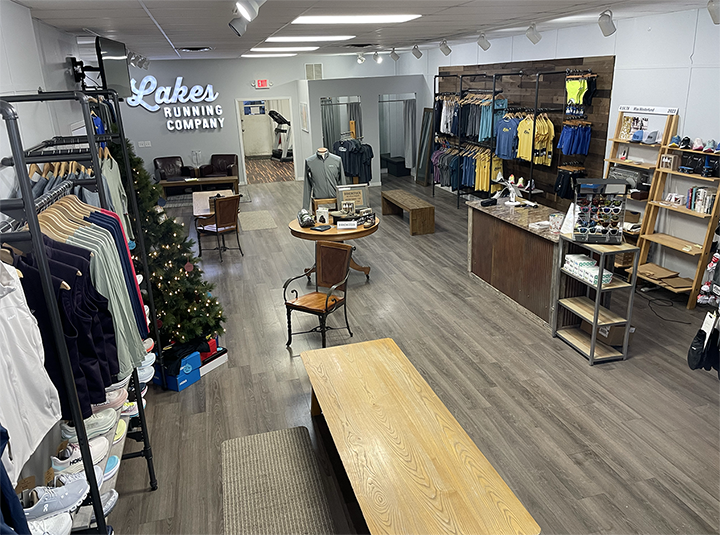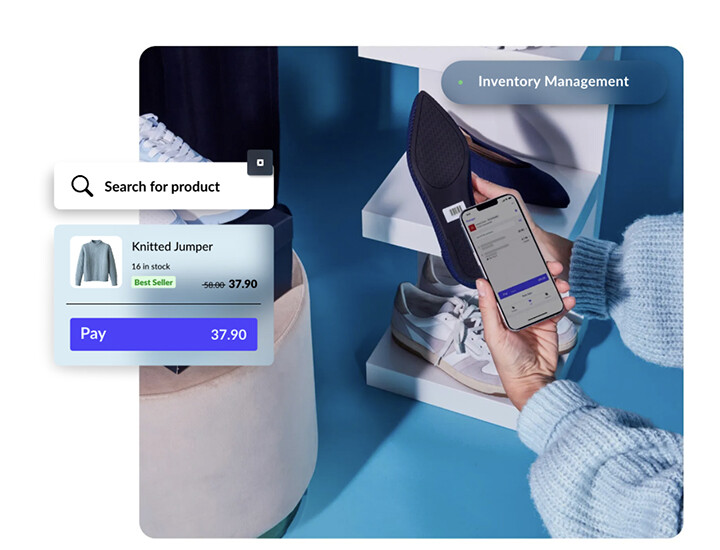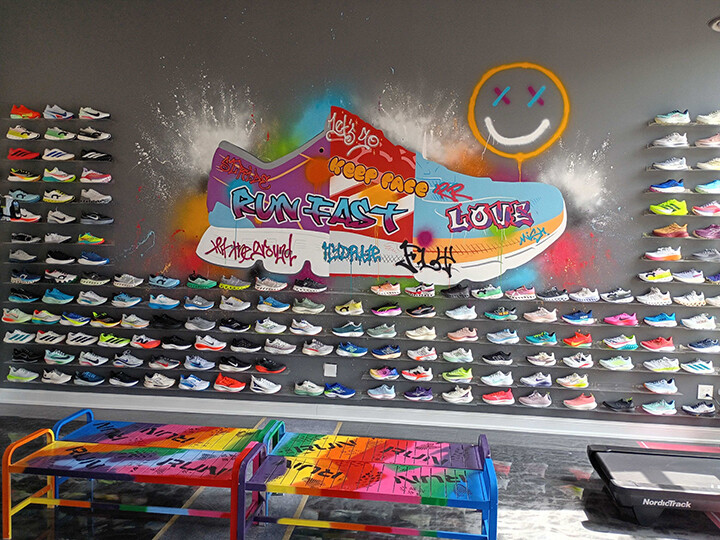Melissa Gonzalez describes herself as “an intellectually curious, innovator, strategist and storyteller at heart.” Prior to becoming a principal at MG2 and founding The Lionesque Group, which was acquired by MG2, she worked in Institutional Equities where she ferociously studied company business models and stories to advise on investment ideas. She shares some of these ideas with Running Insight as she prepares for her keynote presentation at The Running Event in Austin, TX, this month.
With your background in various retail categories, how would you rate run specialty retailers in terms of “keeping up” with retail trends in technology, marketing, merchandising, etc.?
Specialty retailers vary in their integration of technology, marketing and merchandising. Smaller retailers have more nimbleness and less corporate infrastructure, allowing them to explore and experiment easier and there are more tools that are plug and play than in the past.
But that smaller size brings other challenges, right?
However, the need to prioritize budget brings different constraints versus larger retailers. I have seen significantly more evolution in digital marketing than other areas that tie to in-store experience. Run specialty retailers are just starting to scratch the surface in terms of operational tools and there is a lot of opportunity to raise the bar of the customer experience by leaning more into that.
So what do you see as run specialty’s strengths?
It’s a category with a lot of innovation from a product standpoint, especially as we have seen a shift to consumer preferences in terms of footwear, heightened awareness around wellness, etc. That is an opportunity for run specialty stores. There are creative ways to get closer to your customer on a personal level and glean insights around what they are craving, build community that creates more glue and let your customers know they are heard.
What weaknesses do you see?
It’s common to have limitations from a resource perspective versus larger scale competitors who can allocate budget to test concepts. This can be creatively solved via partnerships, however.
Run retailers do tend to be passionate individuals who have taken their love of running and made it a career. What is your advice on how to make that passion last and turn into a successful business?
Lean into your unique value proposition. How is that passion enabling you to do it differently and better than your competitors? Is it how you curate, is it how you elevate the fit experience, styling advice, a combination? Then think about how you are communicating that. How does it show up in the in-store experience, the way you speak, the way you merchandise, the way you program in-store events? And of course the math always matters, so layer in how this all impacts your customer acquisition cost, word of mouth virality and customer retention rates.
What can TRE23 attendees learn from the other, larger retailers?
Storytelling, merchandising, best-in-class store associates and omnichannel strategies are all areas TRE attendees can lean into. It is about understanding where you are providing value for your customers. Your story is your unique value proposition, tell that story to build emotional connections.
Is what the larger retailers do transferable to smaller stores?
Merchandising strategies can take many forms, but aspiration should also be a filter. The homework is what helps your customer — is it education around fit, demystifying how they style, being inspired by lifestyles or a combination? Additionally with such an evolution in payment technology and ecommerce platforms today, it’s becoming increasingly attainable to ensure you have integrated commerce that allows you to make the shopping experience as seamless and frictionless as possible.
On the flip side, what do you think these larger retailers can learn from run specialty?
Your stores are a location for human connection and that is something people still crave, especially Gen Z. Leaning into creating a more intimate, community-centric experiences is a major opportunity for run specialty. Many larger retailers are trying hard to tap into that with smaller format, local stores, but run specialty has that opportunity at its core and with a niche expertise.
Your session description teases some of the trends that will occur at retail in the next five years? Can you share one or two of them?
We all see the rise of AI and I believe that will further the opportunity for smarter merchandising and more personalized experiences and will put more data in the hands of store associates. Experiential retail will continue to evolve as well, especially as consumers become more fluent with flexible fulfillment, allowing retailers to be more imaginative with space and create experiences that are more based around discovery, lifestyle and community per square foot.
How would you suggest smaller specialty retailers approach and work with brands on partnering for a win-win situation?
The opportunity for brands partnering with smaller specialty retailers is the spotlight moment. Think strategically from a marketing standpoint. How do you make this new arrival/partnership feel special? Do you have a signature, flex area where limited edition collections are featured in a way that they stand out? As a retailer can you give first look access to your VIP shoppers? Maybe there is a local ambassador for the brand you can also tap to announce and celebrate the arrival with you? As a brand are you promoting your access in a new territory through a specialty partnership?
Are you a runner? If so, where do you shop, what’s your running routine, favorite gear/shoes, any running success stories?
That depends how you define running! I am not a distance runner, but I am an active person. Currently I am head coach of my daughter’s soccer team, so that is my recent success story. We shop and support our local soccer specialty store where they sell a curated selection of sneakers. For soccer I am an Adidas fan for myself and my daughter.
As an outside observer, when you walk around a trade show like The Running Event, what do you look from vendors and attendees and the overall vibe?
I look for a story. The vibe can vary because it should be a nod to the brand, but I am drawn to unique attributes. Does the design have a correlation to the architecture of the shoe, or the lifestyle ethos or maybe its brand manifesto?
Finally, what would you like TRE23 attendees to take away from your keynote presentation?
The world is evolving faster than ever, especially with the acceleration of AI. I hope attendees can take inspiration on how to think differently, insights on how to be forward thinking and feel empowered as they approach 2024.
About the speaker …
Pushing boundaries in experiential retail and pioneering the integration of physical environments and digital retail, Melissa Gonzalez, principal of MG2 and founder of the Lionesque Group, guides brands such as Kizik, Sorel and Nordstrom to foster consumer engagement and evolve their offerings. Her keynote address will explore what run and outdoor specialty stores can adapt from large retailers with a focus on actionable customer retention strategies. Attendees will learn tips and ideas for loyalty programs, examples of successful brand partnerships.






